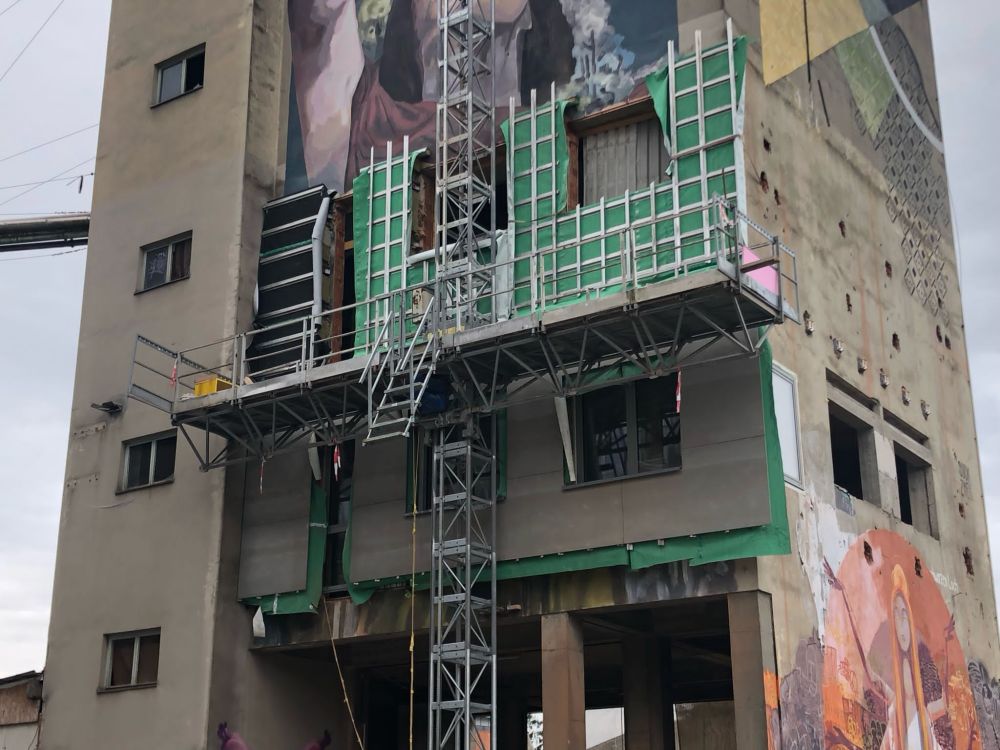EXCESS supports transformation of the Graz Taggerwerk area into modern climate neutral quarter
19 March 2024
Graz is the second largest Austrian pioneer city in the “Climate Neutral City” program. As part of this initiative, Graz supports four model neighborhoods in their transformation towards climate neutrality.One of the four groundbreaking new city districts is being built in the area of the former Tagger Mill area. The local development, which extends over several expansion stages, transforms a former industrial area into a living, working and leisure space for the city's population in Graz that is powered by renewable energy. The final expansion stage will have 31,000m² of usable space.
Due to the many innovative approaches on site, the Tagger area is a lively experimental field for new technologies and an implementation site for EU innovation projects, such as EXCESS. EXCESS accompanies the transformation of a former feed production silo into a plus-energy student hostel via the implementation of external multifunctional facade elements. The first facade elements developed by AEE Intec have already been implemented on site. The Tagger area is therefore not only a milestone for Graz's urban development, but also a symbol of change and adaptability of the urban space.
The heart of this transformation lies in the energy supply. Instead of fossil fuel supplies of natural gas, the developers and EXCESS partners, BAR Vermögensverwaltung GmbH, are relying on renewable energy sources, with the aim of supplying the entire district exclusively with sustainable technologies. The area already in use is supplied via three groundwater heat pumps installed on the site. A fourth, cascading high-temperature heat pump is currently being implemented with a fight in planning. The heat pumps will supply the area with heat in winter and, through reversible operation, with cold in summer. The summer cold supply is also used to prepare hot water, thus generating a double benefit from the electrical energy used.
Electricity required will be generated fully on site as well through a mix of hydropower (140 kWp, 8300 operating hours per year) and building-integrated PVs (365 kWp in the final expansion stage), including local electricity storage (225 kWh batteries). The electricity generated not only benefits the buildings, but is also used for sustainable transport via an e-mobility concept.
Learn more about the Graz Taggerwerk transformation project and the EXCESS #PEB building on site by clicking below.
Graz Taggerwerk development project: https://www.aee-intec.at/grazer-stadtquartier-wird-unabhaengig-von-gas-385
EXCESS PEB demo building in Graz, Taggerwerk: https://positive-energy-buildings.eu/demo-cases/austria
All news
